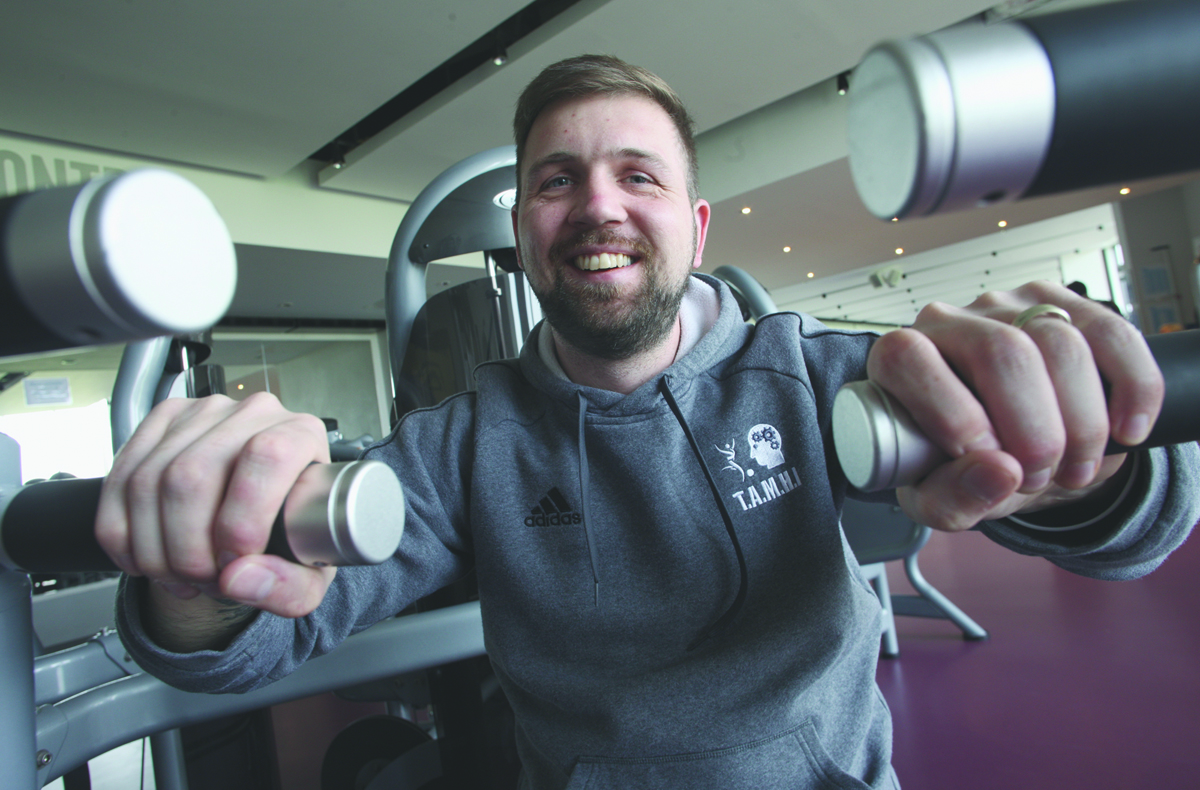AS a former player and coach at St Patrick’s Football Club, Joe Donnelly has always been passionate about sports and has a keen sense of how sport can impact on the lives of people in our communities. When his friend Thomas McLaughlin took his own life in 2009, Joe decided to use that passion as a means of helping others. In 2011, he and Stephen McLaughlin set up the charity TAMHI (Tackling Awareness of Mental Health Issues), which uses sport to promote positive mental fitness.
“After the death of Thomas we started doing football fundraisers and then football clubs started coming to me and saying we should set something up,” Joe explained.
“All of a sudden, we started working with two clubs in 2011 and then in 2014 we went full-time, working with about 40 clubs.
“We’re now working regularly with about 45 clubs and I’m heading up the Irish Football Association’s mental health programme, Ahead of the Game, which is delivered across Northern Ireland.”
The evidence of TAMHI’s work can be seen across North Belfast and beyond. As a well as working with local sports clubs, the charity has a number of vital school programmes that help equip young people and teachers with the tools to help others living with mental health issues.
“We’ve just concluded a leadership programme where we’ve trained a group of 42 young leaders, and we then delivered a big programme to over 160 kids from local primary schools,” Joe said.
“We’ve also just wrapped up a programme where Year 10 leaders delivered a programme to 150 of their peers.”
He continued: “We find that our approach is very effective because we’re using games and using sport and it’s a great hook that works for the majority of people. When we do it in a sports club setting we get 100 per cent engagement, and then when you do it in a community or school setting we still get about 86 per cent of people who enjoy our approach, and that’s accounting for people who maybe aren’t into sport. Our fun interactive sessions work a lot better for most people than just sending someone in to talk to them.”
With North Belfast experiencing higher levels of suicide than any other place in the north, Joe said it is “essential” that local clubs and organisations have “support mechanisms” to help their members, and by providing an effective framework TAMHI are creating positive outcomes in the community every day.
“I think it’s essential that every club takes a preventative approach, so that they’re not just waiting on a crisis happening before they do something, because if one in five young people and one in five adults have mental health issues, which is the general statistic for the whole of the UK, then chances are that clubs serve hundreds of people with mental health issues who need support,” Joe said.
“Rather than wait on them coming to fruition, clubs should be reacting by putting measures in place such as awareness campaigns, programmes and training. If you catch mental health problems early then the evidence shows that you can deal with them much more effectively and you’re not going to end up with a crisis. North Belfast is the number one area in terms of suicide in the whole of Northern Ireland. There were 43 deaths in 2016, according recent statistics, which is three times higher than anywhere else, so it’s essential that local clubs and groups have a preventative based programme. It doesn’t have to be loads, but it’s about education and making people aware that they can go to the local club and they can signpost to the local services. We’re blessed in the sense that we have PIPS, Lighthouse, Bridge of Hope and others all within a pretty short distance. It’s about developing relationships with those services so that the minute you have a problem in your club, you can get in touch and it makes a huge difference to their needs.”
He continued: “By increasing awareness we’re seeing more and more people coming forward and asking for help, which is a massive achievement. Some of our stuff in schools in focused on bullying and we’ve had kids who were being bullied reaching out for help, which is a fantastic outcome.
“We’re trying to do more work around the evils of social media, and when I say that I don’t mean social media when it’s used socially, I mean when it’s used to bully people or nasty things are put on it.
“I think there needs to be an element of control and people need to be taught to report things better when they see something because it is becoming more prevalent.
“We’re showcasing the best examples from this locality. For example, St Pat’s do a lot of great work, 22nd Old Boys on the Shankill do phenomenal work and are probably one of the groups that other clubs should be benchmarking themselves against,” he added.
“We are seeing more people opening up, more awareness, and more people with the confidence to open up because there is a lot of stigma around the issues, particularly in the football environment because you’re challenging masculinity that has typically been about bottling things up.
“Now you have role models and peers saying that if you need to talk about anything then it’s okay.”
Why Joe sees sport as so much more than kicking a ball about or training at the gym

REACHING OUT: Joe Donnelly is an ardent believer in the ability of sport to promote positive mental health within communities


